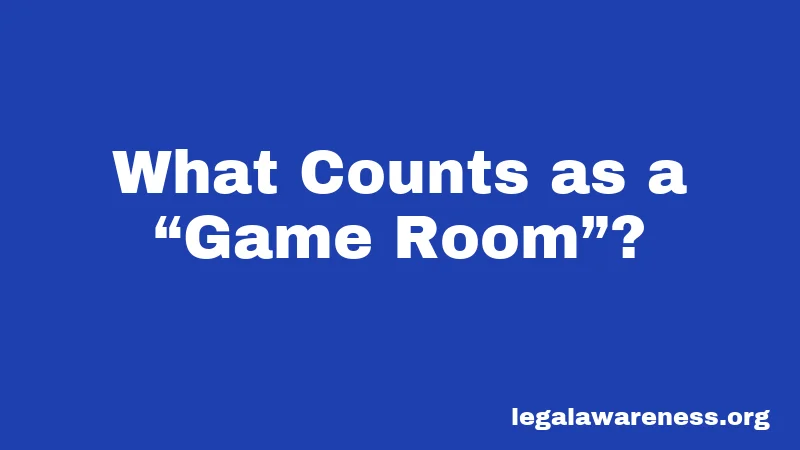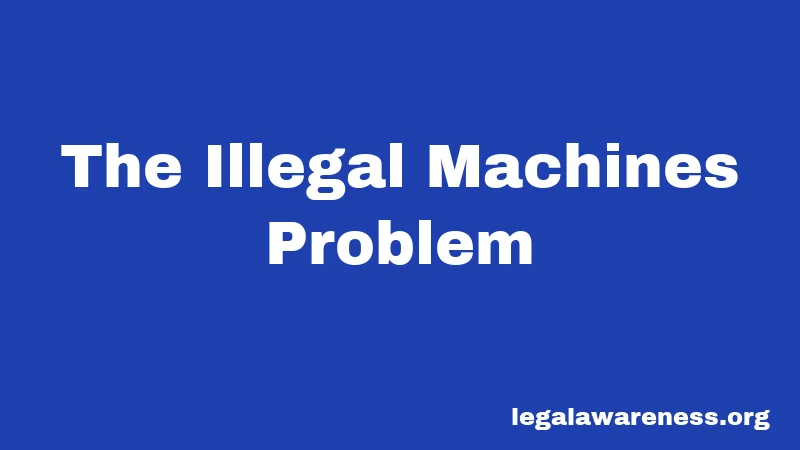Game Room Laws in Pennsylvania (2026): The Skill Games Controversy
You’ve probably seen them. Those slot machine-looking devices in your local convenience store or bar. Maybe you’ve even played one. But here’s the thing—nobody’s totally sure if they’re legal. Seriously. Pennsylvania’s “skill games” are caught in a legal gray zone that’s been confusing players, business owners, and law enforcement for years.
This is actually way more complicated than most people realize. The answer to “are game rooms legal in PA?” isn’t simple. Let me break down exactly what’s happening right now.
What Are Skill Games, Anyway?

Hold on, this part is important. Skill games—sometimes called “games of skill” or “electronic gaming machines”—look almost exactly like slot machines. You put money in, you play, and you can win cash. Pretty straightforward, right?
Here’s where it gets interesting. These machines have two stages. First, there’s a stage that honestly looks like a slot machine with spinning reels. That part? Pure chance. But then comes stage two. Players complete a memory game. They tap colored circles on a screen without making mistakes, or they memorize sequences. Your skill at this memory game can literally change whether you win or lose.
That’s the difference manufacturers say makes them legal. They argue it’s skill, not gambling. The state argues they’re just disguised slot machines. And honestly, it confuses a lot of people.
The Current Legal Status: It’s Complicated
Want to know the truth? Even the courts aren’t 100% sure. This is the frustrating part.
Pennsylvania’s highest court heard arguments in November 2025 about whether these machines are legal. The Supreme Court hasn’t ruled yet. That’s going to be huge when they decide. Until then, the law exists in this weird limbo where nobody really knows for certain what the rules are.
Here’s what we do know right now.
Lower courts have actually ruled skill games ARE legal. Back in 2014, a Beaver County court said Pace-O-Matic’s “Pennsylvania Skill” machines require actual skill and aren’t illegal gambling. Then in 2019, Pennsylvania’s Commonwealth Court agreed. Those machines, the court said, fall outside the state’s gaming law because they’re based on skill, not pure chance.
But here’s the catch. The state’s Attorney General, State Police, and casinos all say the opposite. They argue these are illegal gambling machines dressed up to look like something else. Law enforcement has seized these machines from bars and convenience stores. They’ve charged operators with crimes.
So you’ve got courts saying one thing. Law enforcement saying another. It’s a mess.
What Counts as a “Game Room”?

Confused about what we’re actually talking about? That’s totally normal. Let me clarify.
“Game rooms” in Pennsylvania aren’t fancy establishments with pool tables and dart boards. Nobody’s regulating those. When we talk about Pennsylvania’s game room laws, we’re really talking about locations that have skill game machines. These could be:
- Convenience stores and gas stations
- Bars and taverns
- Restaurants
- Fraternal clubs (VFW posts, American Legions, etc.)
- Fire companies
- Social clubs
Basically anywhere there’s a digital gaming machine that pays out cash. There’s no official “game room” license in Pennsylvania. These machines are just sitting in regular businesses.
The Penalties: What Happens If You Break the Law
Okay, pause. Read this carefully.
The penalties for operating illegal gambling machines are serious. Think felony-level serious.
If you’re caught running illegal gaming machines, you could face charges for conducting gambling operations. That’s not just a fine. That’s potential jail time. The Attorney General charged multiple companies with “corrupt organization” felonies in 2025. Those aren’t traffic ticket-level charges.
Law enforcement has seized machines from businesses. They’ve also seized cash from the machines. That money disappears. You don’t get it back even if charges are eventually dropped.
Honestly, here’s where it gets messy. Some businesses have sued after police seized machines, and they’ve actually won in court. The machines got returned. Money got returned. Because technically, lower courts say the machines are legal.
But if you’re the business owner? You’re looking at legal fees, uncertainty, and headache. Even if you win, the stress is real.
The Illegal Machines Problem

Now let’s talk about what’s actually being cracked down on. This is where things get serious.
Not all machines claiming to be skill games are actually skill games. Some operators literally put actual slot machines or used casino equipment in stores. They just call them “skill games” to avoid getting caught.
In May 2025, the Attorney General’s office seized over 400 of these fake machines from dozens of western Pennsylvania businesses. They charged two companies with felonies. During one raid, investigators found $175,000 in cash and an elaborate surveillance system watching the machines. These weren’t innocent business owners. These were organized operations.
The Attorney General’s statement was blunt: “These devices were essentially slot machines dressed up as skill games.”
That’s the real crime happening. Actual illegal gambling machines operating under false pretense. If you’re running true skill games? The courts say you’re okay (for now). If you’re running machines that aren’t actually skill-based? You’re looking at serious trouble.
Recent Court Cases and What They Mean
So what’s actually legal depends on court decisions. Let me walk you through the big ones.
In 2014, Beaver County Common Pleas Court looked at Pace-O-Matic’s Pennsylvania Skill game. They watched how it worked. The court ruled that yes, the skill component is real. It’s not just a hidden gimmick. Players can actually reverse losses by winning the memory game. The court said it’s legal.
Then in 2019, Commonwealth Court made it even clearer. They said Pace-O-Matic’s machines are games of skill. Because of that, the Pennsylvania Gaming Control Board can’t regulate them. The board only has power over slot machines, which these aren’t classified as.
More recently, in 2023, another judge looked at whether the “skill” component was real or just hidden. The judge wrote: “The machines are not slot machines as commonly defined. Accordingly, these electronic games are not illegal per se.”
That word “per se” matters. It means not automatically illegal just by existing.
But here’s what hasn’t happened yet. The state Supreme Court hasn’t weighed in with a final answer. And the Attorney General is appealing, arguing the skill element is basically impossible to complete and shouldn’t count.
The Tax Question: Why Lawmakers Care So Much
Stay with me here. This is actually about money.
Casinos in Pennsylvania are taxed at about 54%. Lottery winnings are taxed heavily. But skill game machines? They’re untaxed. Completely.
Lawmakers see that and think about revenue. Governor Josh Shapiro’s budget proposals have included estimates that taxing and regulating skill games could bring in $150 million to $370 million annually. That’s huge money for the state.
That’s why both Democrats and Republicans have shown interest in regulating these machines. It’s not about banning them. It’s about collecting taxes. Shapiro said skill game regulation is “unfinished business.”
But here’s the problem. The casino industry opposes it fiercely. They say skill games are stealing their revenue. Small business owners support the machines because they help keep lights on. Equipment manufacturers obviously want them to stay legal and unregulated.
That’s why nothing has passed yet. Everyone’s fighting too hard to get their way.
Can Cities Ban Skill Games?
It gets better (or worse, depending on your perspective). Even if Pennsylvania says skill games are legal, some cities are banning them anyway.
Philadelphia passed a ban in 2025. You can’t operate skill game machines in most Philadelphia businesses. Exceptions exist for bars and restaurants, but not convenience stores or social clubs.
Other cities have tried similar bans. Old Forge banned them. Other municipalities are considering it.
Here’s the thing though—Pace-O-Matic has sued Philadelphia over the ban. They argue if the state says the machines are legal, cities can’t just ban them. That case is ongoing.
So you’ve got this weird situation where the state Supreme Court hasn’t ruled. The legislature hasn’t regulated them. But cities are creating their own rules anyway. It’s legally messy.
Operating a Skill Game Business: What You Need to Know
Thinking about putting machines in your business? Or already doing it? Here’s what you should know right now.
First, understand that you’re in legal gray territory. Courts say you’re probably okay. Law enforcement says you might be breaking the law. Your city might ban it. There’s genuine legal uncertainty.
If you want to operate machines, only use ones from established manufacturers like Pace-O-Matic that have won court cases supporting them. Don’t ever use actual slot machines or used casino equipment and call them skill games. That’s federal crime territory.
Second, keep detailed records. Document everything. The machines need to actually require skill. If law enforcement shows up, you’ll need proof that your machines are legitimate.
Third, check your local ordinances. Call your city hall. Is skill gaming banned where you operate? Are there regulations about placement, age restrictions, or revenue sharing? Some places require machines not be visible from the street. Some ban them near schools.
Fourth, get legal advice from someone who knows Pennsylvania gaming law. Seriously. The gray area is real. A local attorney can tell you what’s safe in your specific area.
Finally, know that things could change. The Supreme Court could rule against you. The legislature could pass regulations. Your city could ban them. Business owners are accepting that risk right now by operating these machines.
Age and Addiction Concerns
Wait, it gets better. There’s also the question of who plays these machines and the addiction question.
These machines are in convenience stores where kids can see them. They’re in bars where teenagers might sneak over. Nobody’s regulating age access because nobody’s officially regulating the machines.
Advocates for addiction protection say these machines look just like slot machines because they essentially ARE slot machines to the brain. The lights, sounds, and variable rewards trigger the same responses. Whether it’s 80% chance or 100% skill, the addiction risk is similar.
District attorneys in Pennsylvania have expressed concerns about this. They’ve asked the governor for regulation specifically to include protections against underage access and addiction prevention.
The response? Nothing yet. Regulation hasn’t happened.
Pretty straightforward concern, right? It’s not being addressed.
What Happens If Police Seize Your Machines
Let’s say the worst happens. State police show up and take your machines.
Here’s the weird part. Based on court cases, you can actually sue to get them back. Seriously. Even though you don’t have a guarantee the machines are legal, courts have consistently ordered police to return seized machines and cash to business owners.
The bar owner in Dauphin County had his machines seized in 2019. He sued. He won. Got machines and money back.
But and this is a big but, you’d need to hire a lawyer. You’d need money to fight. You’d be closing your business for months or longer. Even if you win, the cost is brutal.
And there’s no guarantee your case will turn out the same way. Courts could start ruling differently. The Supreme Court could change everything.
Philadelphia’s Skill Game Ban: What Happened
Since Philadelphia’s situation is getting attention, here’s what actually went down.
In 2025, Philadelphia City Council voted to ban skill game machines in most businesses. They made exceptions for bars and restaurants, but convenience stores, gas stations, and fraternal clubs couldn’t have them.
Why did they do this? Councilmembers cited public safety concerns. They said unregulated machines attract crime. Thieves rob convenience stores with machines. The cash boxes are targets.
They also noted that unlike regulated casinos with security, these locations have minimal protection. A convenience store doesn’t have cameras monitoring a cash box the way a casino monitors slot machines.
Pace-O-Matic immediately said this was unfair and sued the city. The case is ongoing. They argue if the state says machines are legal, cities shouldn’t be able to ban them. That’s still being fought out in court.
What’s Actually Being Discussed in the Legislature
So what’s Harrisburg actually doing about this?
In early 2025, there were bills floating around that would regulate and tax skill games. Governor Shapiro included revenue from skill game taxation in his budget proposal. He estimated $370 million annually if skill games were taxed at 42%.
The proposed approach would put skill games under the Department of Revenue instead of the Gaming Control Board. Tax rate would be lower than casinos—maybe 16% instead of 54%. This makes sense because supporters argue these are unregulated games that need a different framework.
Legislators from both parties have said they want to address this. But nothing’s passed. The 2025 budget came and went without regulation. Lawmakers called it “unfinished business.”
Why hasn’t it passed? Lobbying. The casino industry opposes it because it helps competitors. Business owners who benefit from machines lobby hard to support them. Equipment manufacturers lobby to oppose regulation.
Politicians say they’ll tackle it in 2026. Maybe they will. But don’t hold your breath.
How to Check Your Local Laws
Not sure what the rules are where you live? Here’s how to find out.
First, call your city or township clerk. Ask if your municipality has any skill game regulations or bans. Get specific. Ask about age restrictions, placement restrictions, and anything else.
Second, check your municipality’s website. Look for gaming or gambling ordinances.
Third, if you’re operating machines, get a consultation with a Pennsylvania gaming attorney. Not expensive for a quick call. Actually invaluable for legal safety.
Fourth, stay updated. The Supreme Court could rule anytime. Check news sources about Pennsylvania gaming law.
Finally, be realistic. Things could change. Don’t build your business model entirely on skill games. Use them as supplemental revenue if you use them at all.
The Bottom Line
Okay, let’s be honest about where things stand.
Skill games are in legal limbo in Pennsylvania. Lower courts say they’re legal. The state says they’re illegal. The Supreme Court is deciding. Nobody knows for sure yet.
For now, if you’re operating legitimate skill game machines from established manufacturers, courts have consistently backed you up. You’re probably fine.
But there’s no guarantee. The Supreme Court could flip the script. Cities might ban them. The legislature might regulate them out of existence. Things are genuinely uncertain.
If you’re a player? Understand you’re playing an unregulated machine in an unregulated environment. If you’re a business owner? Know the risks.
If you’re law enforcement or a lawmaker? The current situation is obviously unsustainable. Something’s going to give. Either the legislature will act, or the courts will decide.
It might not happen in 2026. But eventually? This will get resolved. And when it does, everything could change overnight.
Frequently Asked Questions
Are skill games actually legal in Pennsylvania right now? Lower courts say yes. State authorities say no. The Supreme Court hasn’t decided yet. So technically? It’s uncertain. But courts have consistently ruled in favor of legitimate skill game machines, so they’re operating legally for now.
Can police still seize skill game machines? Yes, but you can usually sue to get them back. Courts have ordered police to return seized machines because they found them legal in lower court cases. It’s a hassle though, and you’ll need a lawyer.
What’s the difference between a legal skill game and an illegal slot machine? True skill games require players to complete a memory challenge that can change the outcome. True slot machines are pure chance. Some machines that claim to be skill games are actually disguised slot machines. Those are illegal.
Could the Supreme Court’s ruling ban all skill games? It’s possible. If the court rules that skill games are gambling devices, states would likely crack down. But it’s also possible they rule that legitimate skill games are legal. Nobody knows until they decide.
If I’m caught operating illegal gambling machines, what happens? Charges could include operating a gambling ring, corruption of minors, and other felonies. Machines get seized. Cash gets seized. You could face years in prison. This is serious stuff, not a minor violation.
Are skill games taxed? Currently, no. That’s why the state is interested in regulating them. Taxing them could bring in hundreds of millions annually. But until regulation passes, operators don’t pay taxes on skill game revenue.
What about online skill games? Pennsylvania hasn’t legalized online-only skill games. You can legally play online casino games and sports betting if you’re in PA, but those are regulated by the Gaming Control Board. Unregulated online skill games would probably be illegal.
If my city bans skill games, can I still operate them? Not legally. Cities can ban them even if the state allows them. You’d have to either remove the machines or stop operating in that city. You could try to sue like Pace-O-Matic did in Philadelphia, but that costs serious money.
Final Thoughts
So here’s the thing about Pennsylvania game rooms. They’re in this weird legal space where the rules are genuinely unclear. It’s frustrating for everyone.
If you’re operating machines or thinking about it, stay informed. Things will change. When they do, you want to know about it immediately. The safest move is always to get professional legal advice from someone who knows Pennsylvania gaming law.
When the Supreme Court rules, or when the legislature finally acts, everything could shift. But for now? Lower courts say legitimate skill games are legal. Follow that guidance. Understand the risks. And definitely don’t operate machines that are actually slot machines in disguise.
The Pennsylvania gambling landscape is evolving. Stay smart, stay legal, and stay updated.
References
- Pennsylvania Supreme Court Oral Arguments on Skill Games (November 2025)
- Pennsylvania Gaming Control Board – Official Regulations
- Pennsylvania Attorney General – Illegal Gaming Network Seizures (May 2025)
- Spotlight PA – Skill Games Regulation Analysis
- Pennsylvania Title 4 – Amusements (Gaming Law)
- WHYY – Pennsylvania Supreme Court Skill Games Case
- City & State PA – Skill Games Regulation Battle
